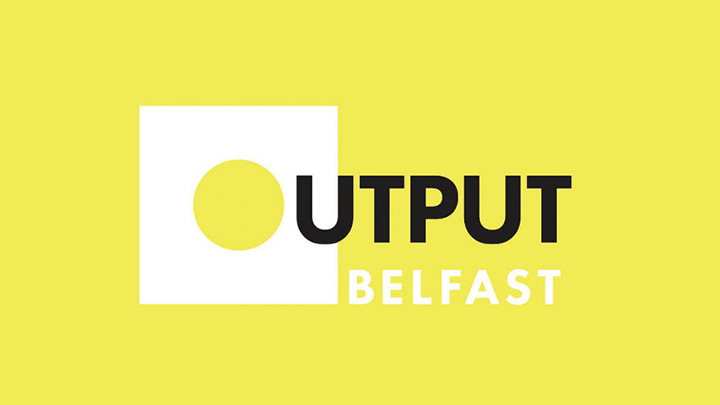Stephen Curran (MCD)
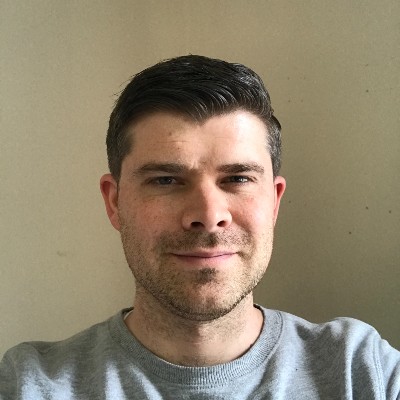
You were taking part in the No Stupid Questions – Everything You’ve Ever Wanted to Know About The Music Industry (But Were Too Afraid to Ask) panel today, what do you know now that you wish you knew at the start of your career?
I tell people to be in the room, to go to events like Output, go to gigs, go to launches, go to anything you can just to avail of those kinds of random moments that you meet someone and a business opportunity comes from it.
Over the last two years has your process for finding new acts to work with changed?
Yeah, but two years is kind of short so it’s more like 10 years. I’m 42 now, I find that the guys in their 20s are much quicker finding x and their friends in their teens are even quicker so it generally gets longer as you get older, but some things are quite easy to find. Like Olivia Rodrigo recently, everyone, I think knew that that there wasn’t much A&R involved there.
What are your hopes for the future of the live music industry?
Sell more tickets!
What was your first gig?
My first gig was called Dance Against Drugs. It was a charity event in the King’s Hall in Belfast, and it was a load of local DJs including Tizer playing ‘Happy Hardcore’, which is very embarrassing.
Nikki MacRae (Programme & Outreach Officer at Help Musicians NI, Co-Founder Soft Gut Song Camp)
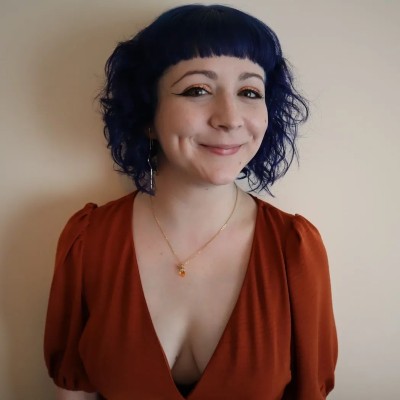
Help Musicians NI is a vital resource, can you tell us some of the ways which you support musicians?
Help Musicians has been going for over 100 years now, we support musicians in times of crisis and in times of opportunity. So our support varies between creative support to help people with their careers and their own skill development to support towards physical and mental health needs, anything that could relate to crisis for a musician in their lives. Our support is all encompassing, completely holistic and very artists focused.
What are your top three pieces of advice for someone applying for funding?
First bit of advice is, most funders will have opportunities for you to talk to them. Don’t feel as though you need to write your application in isolation and work it out all on your own. Pester them, call them up, email them get in touch in any way that you can and get that advice to be able to help your application be the strongest they can possibly be. Second thing to note is chances are whoever is marking your application does not know you yet. So write as though you’re talking to somebody completely removed from music, who needs to learn about you from the first time. Big yourself up and don’t spare any detail and talking about who you are and what you want to do. And the third thing is really think about where you want to be a year from now and how your project is going to get you to that point. That will help you flesh out what your project is going to be instead of being vaguely an album project or just generally I wanted to get guitar lessons. Really thinking about the bigger picture will help you flesh that out and have a greater chance of being able to secure funding support.
What are your hopes for the live music industry?
My biggest hope is that people will start to really appreciate the value of the music industry at large, not just the community element, the holistic element but also the economic element and how it benefits us all in a greater way. So I really hope that this makes people really value the music industry, I know a lot of people will hate me saying this, but I hope ticket prices go up. I hope artists start charging more for their services. I hope people stop thinking, ‘Oh, I could probably see that artists in six months time. So I won’t go to this gig tonight.’ And they’ll just go to the gig tonight because we do not know what is ahead of us and artists need that support more than ever.
What was your first gig?
My first ever gig was when I was 11 years old and my school was running a UNESCO project where the children involved in the UNESCO charity were brought to Belfast City Hall to see a Christian Rock band called Untouched. So that was my first ever gig and I am proud to say that Belfast now has UNESCO status so it’s come back around. My first local gig was when I was I think 15 and I went to Lavery’s to see a band called Steer Clear. There was wall of death in the crowd and I was so small that the band picked me up and sat me on the stage while it was happening and that’s the only reason I’m in music!
Aaron Casey (Head of Music Business at BIMM Institute Dublin, Rights & Royalties Consultant)
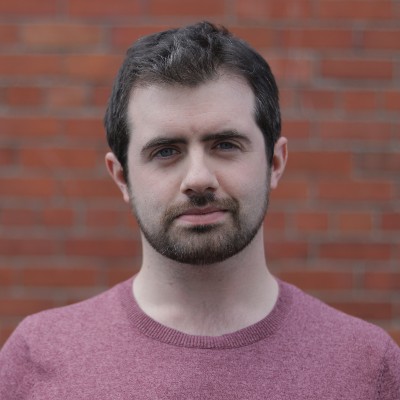
Have students been affected over the last years as they were unable to perform live?
Yes, students in BIMM that are studying performative subjects, it’s their lifeblood, it’s what they do. Their whole thing of coming to study and their whole thing of coming to study how to be a professional musician, guitar, bass drums, you know, the experience of playing live, or being on stage is really important to them. That’s been missing from their experience over the last couple of years, which has been really tough because as they progress as professional musicians, it’s all about moving from stage to stage, bigger cap rooms, getting the experience of letting the crowd wash over you and if they don’t get that there’s a very important part of their education missing as well.
From a royalty perspective, how quickly do you think songwriters and publishers will recover following the closure of live events?
Royalties take time to flow through. Not being able to tour, have residencies or perform standalone shows means that no public performances took place. Since restrictions have been lifted the royalty machine has been spinning again but it can take a while for payments to be made depending on where the performance came from.
Promoters and venues have had an extremely tough time of it over the last two years but in order for the royalties to flow through to the songwriters and music publishers it requires prompt settlement with Performance Rights Organisations.
In a post-pandemic re-opening of live music it may take until the middle of 2023 for a full journey of a song from live performance right through to the royalties being disbursed. This is the best case scenario factoring in some of the longest processes.
What was your first gig?
My first gig was Bell X1. No, it wasn’t actually… I think it might have been Snow Patrol in The Point.
Laura McCabe (Artist Manager, Jawdropper Music – Dani Larkin, Pastiche, Columbia Mills, Jackie Beverly)
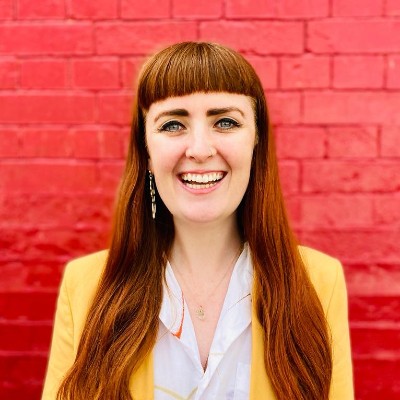
Has the last two years changed how you manage your current roster of artists and search for new acts to represent?
I suppose the big thing about the last couple of years was trying to keep my artists’ spirit levels high, and mind their mental health more than ever. It’s always been a really important thing but the last couple of years they’ve definitely struggled a lot more than normal times. So, minding their mental health has been something that’s been extra important for me than maybe it was before.
I think it’s changed a bit, you’ve had to think on your feet far more often than I’ve ever had to do in my whole entire life and trying to re strategize has been certainly an interesting challenge given the circumstances we’ve all been through during COVID. It hasn’t changed necessarily how I’ve looked for artists. I suppose the only thing that’s really changed for me is just the importance of digital. Digital has become hugely important because we know that labels and publishers and people like many labels really, really, really, scrutinize the online data of your social media and your streaming numbers. So that probably has changed for me a little bit. So it’s just appreciating the importance of the digital side of management for your artist.
How important is an artist’s live performance when it comes to finding management representation?
I think for me personally, it’s kind of up there with being number one. I’d say the live performance element/songwriting, would tie for the number one thing for me. If I don’t love the music, if I don’t want to go see them playing a live show, then I’m working with the wrong people. Live shows for me are super important. I think they’re a really important way to engage audiences and to continue to build that kind of fan base through authentic good live performances. I know there’s some people I work with that can sell out their shows, but it might be harder to get streaming numbers up or their social media numbers up but then they walk into a room and they have the whole audience eating out of the palm of their hands and I think it’s just really important for me. It’s definitely something I would look forward in an act just because I’m a big music fan and I only want to work with people that I would actually want to go see their shows.
What was your first gig?
I think it was probably one of the Childline gigs in The Point. I think that was probably my first gig. My auntie used to work in Sony in marketing so she used to bring us to all the cool gigs but I think Childline was the first one. Boyzone was one of the main acts, if I can remember correctly.
Joe Dougan (Concert Promoter, Belsonic)
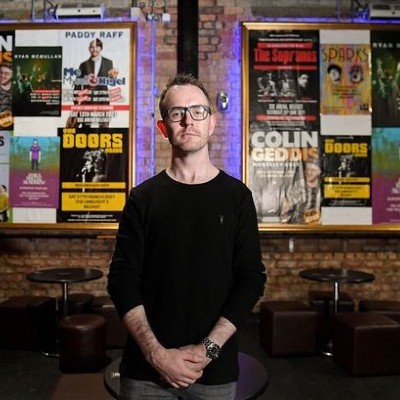
What has been the most challenging aspects of your career over the last two years?
Well as a live music promoter, our entire business disappeared overnight. We were forced to reschedule so many shows, a lot of which disappeared. As a venue operator as well, it completely destroyed all of our ability to earn. We have venues in Dublin and venues in Belfast, so trying to manage the past 2 years back to profitability has been punishing. Maybe some of the ways in which we’ve diversified as a company has been beneficial the likes of the comedy stuff that we do now beyond music concerts and club nights and so on. But in general, that recovery process has been the hardest thing I’ve ever had to do.
What would your main advice be for someone who would like to become a music promoter?
I would work across every area of the music industry. I would be a jobbing musician, a DJ, a club promoter, a sound engineer, all of these things, because a promoter has to have a kind of an overall view of how the events work, and the best way to do that is to do it yourself. Most of the promoters that I know are actually ex entertainment officers at universities, and that gave them a really early grounding in the industry. So I think a good broad view is the best way forward.
What was your first gig?
I saw Suede at the King’s Hall in Belfast in 1997. I left early because my brother was unwell. So the first the first proper gig I ever went to was I think was the May Ball at Queens when I was 18, it was JJ72.
Keith Johnson (IMRO Director Marketing and Membership)
How important are live events for songwriters?
Aside from royalties, huge because it’s the testing ground for the creativity. So, unless you get out in front of an audience you don’t really know just how good it is, it might seem in your head that it might be excellent but getting in front of an audience will give you real time feedback.
What’s the greatest joy you’ve got from live music?
Just life changing moments throughout your life is you know, gigs years back, it’s those pivotal moments. Being with your friends at certain time in life in front of your favourite bands and it’s just brings you right back there every time you hear the music.
What are your hopes for the future of the live music industry?
That it survives and grows after a difficult two years, that is comes back and comes back with a burst. That would be the main thing.
What was your first gig?
It was Morrissey in the Stadium I think.
Bobbi Arlo (Artist)
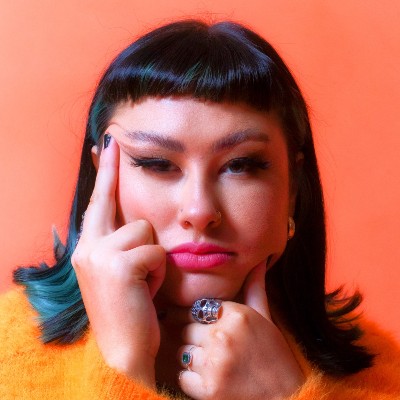
As a performer, how has the last two years affected you?
So, I’m quite different to other performers, I would say because my career started in lockdown. Most people suffered through lockdown but I kind of decided to take the route and keep pushing through and that’s the reason why I’m here today. I decided to keep working during lockdown and that gave me a platform thank God.
How would you describe the feeling of performing live to a crowd?
It is like no other feeling, it’s honestly one of my favourite things to do. Being in front of that many people I’m feeling the energy of people and it’s…you can’t compare it with anything. It’s amazing.
What are your hopes for the future of the live music industry?
More shows, more Irish artists on some bigger stages. It’s always great to see your peers do bigger and better venues and, I’d love to see all of my friends including me in the 3Arena and the biggest venues in Ireland. So yeah, more Irish content on bigger stages on more stages.
What was the first gig you went to?
The first gig I ever went to was Shane Ward. I think it was in the Olympia. I must have been like seven or eight. I got the tickets for Christmas, and I was so buzzing I didn’t even know who Shane Ward was, but I fell in love with him and still am a Shane Ward stan to this day!
Shane Dunne (Indiependence Festival/MCD Promoter)
Has COVID-19 changed how you approach booking a festival?
Yeah, look, I think COVID-19 changed everything. There’s no point pretending it didn’t, it’s changed how we work. It’s changed how we communicate with people. It’s changed people’s attitudes to going to festivals. Going back five, six years ago, the line-up was the most important thing. Your headliners were the thing that sold you the tickets. I don’t think that’s the case anymore. It was changing pre Covid and it has certainly changed now. People just won’t accept some of the setups that existed. In general, people have become used to not queuing, they’ve become used to people not touching them, they’ve become used to things being really clean. We have to come back now and 2022 a little bit better than we were before. So this changes your booking policy because you’ve got to spend some of that money on other stuff.
What are your hopes for the future of the live music industry?
I kind of hope that we stop rewarding the craziness and we stop saying somebody’s great because they work 20 hours a day, seven days a week, it’s not sustainable. I think in the last couple of years through Covid, people’s mental health has become prevalent. It was prevalent before, but it is even more sort of forefront now. As an industry, certainly in the live industry, we’ve always almost rewarded people who will kind of work themselves to the bone and work crazy hours, do a 20 hour day and drive four hours home and I think that we kind of need to move away from that. If it means hiring more people, having more people on site so that people work less hours and have better quality of life or better quality of work. It’s an unbelievable industry to work in, you won’t get the buzz of standing on the steps of the 3Arena when the lights go out and the crowd goes mad for the artist goes on stage, or on sale for a festival or working a festival, you won’t get that anywhere else. That’s the payoff, but I think we all have to accept this and hope for the future that people will accept that we can work smarter, work a little bit better, and just have more enjoyable kind of work life balance and just work with people that you like and people you’re happy to be around for long days in potentially wet fields.
What was your first gig?
First gig I was that was a was at was Oasis in Páirc Uí Chaoimh in 1996. I was 16, I got the bus up from Mitchelstown. Had no place to stay and missed a couple of opening acts. I remember getting in for the Prodigy who were the main supports, and then schlepped around Cork City until about six o’clock in the morning when I got could the first bus home. Weirdly, a gig run by MCD and of the last MCD gigs in Cork until we went back there with Musgrave Park shows in 2019. It’s weird how things kind of go and in full circle.

